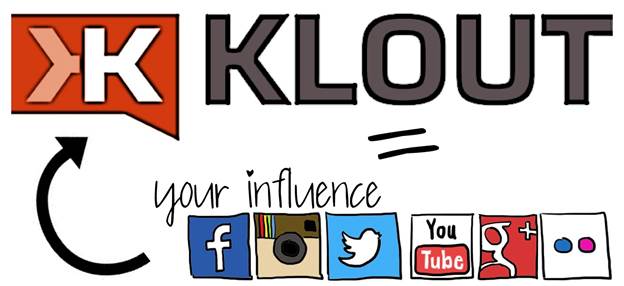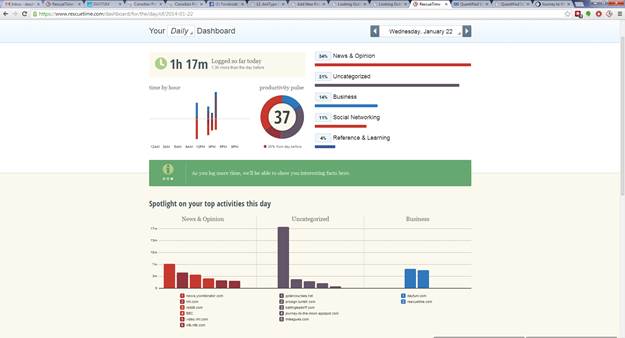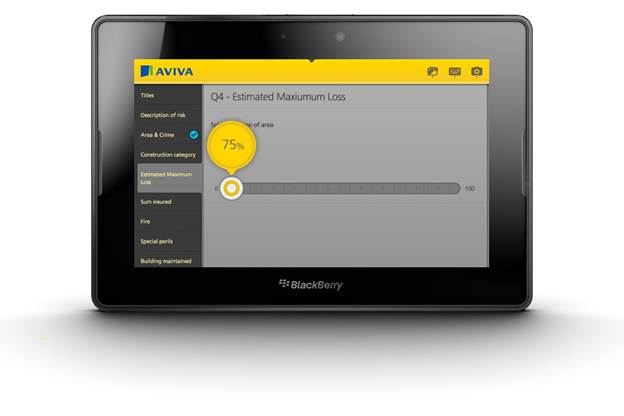RescueTime not only logs the applications
you’re working in, but also tracks individual documents - which is an excellent
way of monitoring how much time you’ve devoted to a project, and helps a
freelancer such as myself work out how much to charge to make a job worthwhile.
Its reporting tools are superb, allowing you see at which times of day you’re
most productive (I’m definitely a morning person), and on which days (my two
most productive days were both Mondays, after restful weekends). Of all the
apps I’ve tested for this feature, RescueTime is the one I’d be loath to part
with.
Social Media
While RescueTime acts as a nicotine patch
for my Twitter addiction, there are Twitter analytics sites that keep fuelling
my habit. Klout is a dangerous site for those with even a shred of ego, rating
your influence and comparing it to that of your contemporaries, based on a
rather opaque set of criteria. I won’t pretend it doesn’t hurt when I get a
message telling me my influence has dropped over the past 90 days, nor will it
stop a wry grin spreading across my face when one my missives is retweeted by
one of my “super-followers”, who broadcast my message to their audience of tens
or hundreds of thousands. I’ve been stubbornly stuck at a score of 59 or 60 for
months, so if you’re reading this, Justin Bieber, would it hurt you to retweet
a vain technology journalist?

Social
web startup Klout that has struggled to build users is up for sale
for $100 million and Lithium Technologies is looking to buy
However, the real nerdgasm arrives courtesy
of Twitonomy, which turns your Twitter output into an elongated infographic.
Apparently I send an average of 32.63 tweets a day, which certainly supports
RescueTime’s accusations of wanton time-wasting, not least because my most
active Twitter day is Wednesday, and my most active hour is 5-6pm. Now my main
worry is that I’ll not only continue to plunder work hours on Twitter, but I’ll
also spend even more time analysing quite how many I’ve lost.

Similar
to Open Paths but run by Google
Driving
It’s simply a matter of time before
insurance companies insist on black boxes recording our driving habits before
they’ll even offer us a premium. So what’s life like with Big Brother in the
passenger seat? I tested two apps designed to rate your driving skills, both
offering the carrot of discounts on insurance premiums to those adjudged to be
careful drivers.
Both the Confused.com MotorMate and Aviva
Drive apps claim to monitor your driving style, using a combination of GPS and
accelerometer to determine your speed, how you brake and accelerate, and “how
you anticipate the road” - whatever that means. Both will offer a final verdict
on your driving style only after you’ve driven 200 miles using the app, which I
didn’t have time to do in my month of lifelogging, but at least they give you
some feedback along the way.

Aviva
hopes the easy-to-use UI of its PlayBook app will
boost the productivity of its field reps three-fold.
MotorMate’s feedback is the more
comprehensive, but also the most baffling. It gives you a little report after
each journey. On both the test trips I took using the app, it didn’t record a
single incidence of speeding, excess acceleration or low anticipation - the
three big driving no-nos the app is looking for.